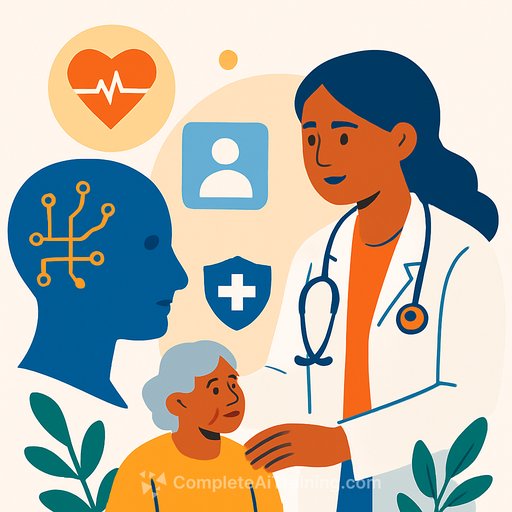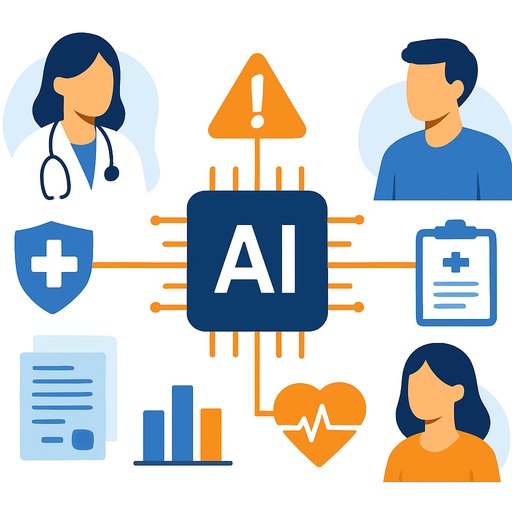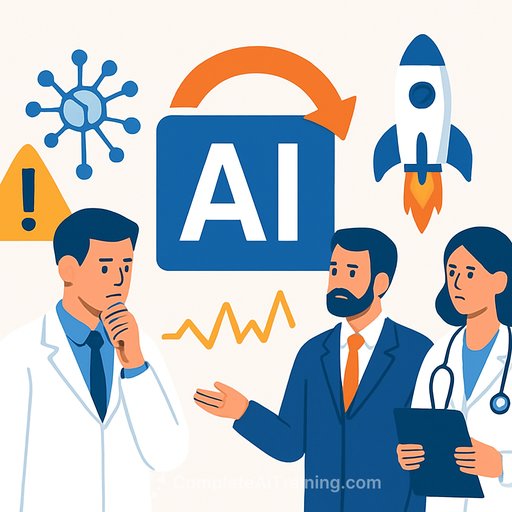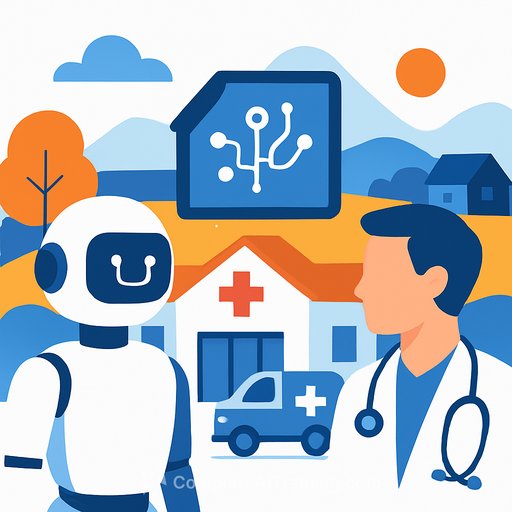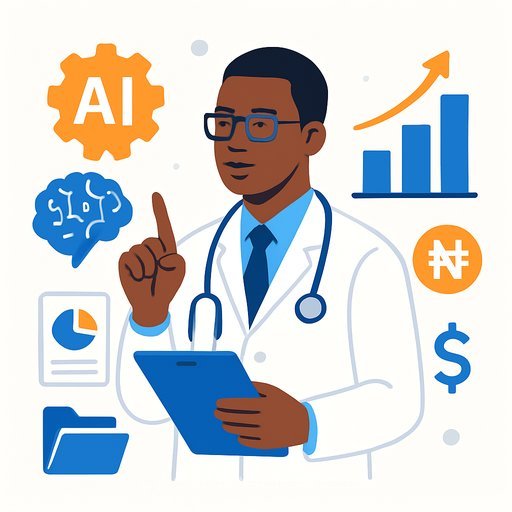AI as a Catalyst for Change in Healthcare
Global healthcare faces a hard truth: a projected shortage of over 11 million healthcare workers by 2030. In low- and middle-income countries, up to 8.4 million deaths each year are linked to poor-quality care. Even where staff are available, expertise is uneven, and stigma-especially around mental health-keeps many from seeking help. We need approaches that extend skill, simplify access, and respect clinical judgment. AI can help do exactly that.
AI Complements, It Doesn't Replace
AI is most useful when it augments clinicians. It can streamline triage, surface evidence at the point of care, and personalize education without adding to burnout. The aim is simple: free up time for human care, extend specialist capacity, and improve consistency.
AI for Mental Healthcare
Depression and anxiety affect hundreds of millions globally, yet psychiatrists account for less than 2 percent of physicians. AI-powered chatbots can offer immediate, low-friction support and help flag higher-risk users for timely referral to licensed professionals. Used well, they expand reach without pretending to be therapy.
New models are being trained to read signals of distress and respond with empathy. The goal is emotionally aware responses that support patients while respecting clinical boundaries. This only works with clear safeguards: periodic bias audits, misuse detection for sensitive topics, and escalation protocols. These tools should never be positioned for crisis intervention.
- Define boundaries: Make it explicit what the tool can and cannot do, and when to hand off to a clinician.
- Protect privacy: Treat all conversations as sensitive health data with strict consent and access controls.
- Monitor safety: Run bias checks, track hallucinations, and test prompts for risky or discriminatory outputs.
- Build escalation: Route red flags to licensed professionals and provide crisis hotlines where relevant.
A Path Forward for Responsible Innovation
- Clinical oversight: Work with medical organizations for continuous review and equip teams with AI that improves efficiency and accuracy.
- Safety-by-design: Anticipate hallucinations and misinformation, and implement layered safeguards for sensitive data and privacy.
- End-to-end integration: Connect online and offline care-reliable information, digital triage, referrals, and personalized follow-up.
- Collaborative stewardship: Align technology companies, health systems, and policymakers on standards that balance innovation with patient protection.
Practical Steps for Healthcare Leaders
- Start with high-impact use cases: Mental health screening, patient education, documentation assistance, and care navigation.
- Set governance early: Multidisciplinary committees for ethics, privacy, security, and clinical safety.
- Secure the data: Minimize data collection, de-identify where possible, and enforce role-based access.
- Keep humans in the loop: Require clinician review for diagnostics, risk scores, and treatment suggestions.
- Measure outcomes: Track accuracy, equity, patient experience, and time saved. Retire tools that underperform.
- Train your workforce: Provide practical AI skills and clear SOPs for safe, consistent use.
- Communicate with patients: Explain how AI is used, how data is protected, and how to get human help fast.
What Good Looks Like
Patients can securely access trusted information, digital triage, and referrals through familiar platforms. Clinicians get decision support inside their workflow, not in another tab. Care teams see a unified view across pharmacy, primary care, and specialists, with handoffs that don't break.
The promise is healthcare that is more accessible, more consistent, and more personal. Achieving it requires unwavering focus on patient welfare, safety, and equity. Technology is the tool; ethics and clinical judgment set the standard.
Source: Tencent, 01.10.2025
WHO: Mental health overview
Lancet Global Health Commission on quality of care
Want your team to build practical AI skills for clinical and operational use? Explore role-based learning paths: AI courses by job.
Your membership also unlocks:

